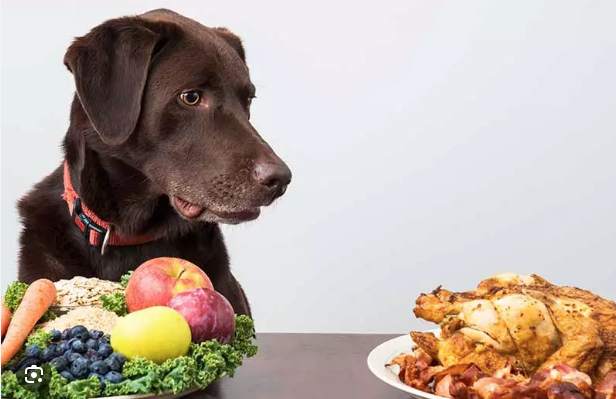Goodbye chicken, hello pea protein.
Decades ago, choosing dog food was easy: Just pick any of the nearly-identical kibble or canned foods from the grocery store shelves. Today, there’s a gazillion more options out there, with many of them touting themselves as fresh and “human-grade.” Recently, some of the ‘fresh’ options are vegan or vegetarian. Vegan dog food has boomed in popularity in recent years, driven by increasing consumer concerns about the health of their pets, and the environmental sustainability and ‘food animal’ welfare impacts of meat-based pet food.
Why is vegan dog food so popular?
The growing popularity of vegan dog food might come as a surprise to the average pet owner. Dogs have always been thought of as carnivores since descending from wolves. According to Dr. Kelly Swanson, a professor of animal and nutritional science at the University of Illinois Urbana-Champaign, ‘Dogs are really omnivores. They evolved from carnivores but they’re not wolves. If you go back to the basic nutrition principles… you can create vegan diets or vegetarian diets, but you have to be more knowledgeable and more careful.”
As for why owners might turn to vegan dog food in the first place, it may have more to do with the trends of our own diets than any new or groundbreaking animal nutrition science.
While they may be marketed for our dogs, the variety of dog food options are really looking to feed into human imaginations instead. Raw meat diets, for example, fuel the idea that our dogs are ruthless, meat eating wolf descendents. On the other hand, vegan diets paint a picture of a thoughtful, intelligent, and Earth-loving companion. Either way, it is important that people realize what they’re doing, and do it intentionally and with reflection and understanding of the dog’s needs.
Is vegan dog food healthy?
Despite its growing popularity, the nutrition and health benefits of vegan dog foods are actually under studied. Two recent papers in the Journal of Animal Science compared vegan dog foods with traditional kibble. Both studies found vegan food to be a healthy option.
- So vegan diets can be as nutritionally balanced as more traditional diets. However, crafting the right balance of proteins using only plant based sources can make the process a little more challenging.
- ‘There’s roughly 45 different essential nutrients [to include] when you think about the amino acids, fatty acids and vitamins and minerals. Meeting those needs are easier to meet if you have animal based products. In a vegan formula you really have to be kind of careful using complementary protein sources.’
- Without using meat as a vitamin and protein source, vegan foods instead rely on things like yeast and vegetable protein sources, such as soy or peas, to close those potential nutrition gaps.
What pet owners should know.
According to Kelly S. Swanson, PhD of the University of Illinois, Urbana-Champaign, if you want to feed your dog a vegan diet or if you wish to feed your dog a diet including meat – either option is fine, as long as you buy from a reputable company, a vegan or meat-based diet can be a completely safe option for your pet. However, making your own vegan dog food at home could carry more risk because ingredient quality and complementary pairing of protein sources can be more difficult to achieve. For this reason, Swanson recommends against a DIY approach to vegan dog food. Experts suggest to better emulate the human nature of our pets, try a hybrid approach: letting your pet choose for themselves.
